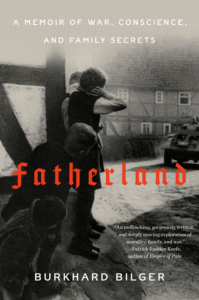
Abraham Verghese’s The Covenant of Water, Nana Kwame Adjei-Brenyah’s Chain-Gang All-Stars, and Alexandra Auder’s Don’t Call Me Home all feature among the Best Reviewed Books of the Week.
1. The Covenant of Water by Abraham Verghese
(Grove)
11 Rave • 2 Positive • 1 Mixed
“When you come to the end of Abraham Verghese’s new novel, The Covenant of Water, you will feel that you have lived among the Indian and Anglo-Indian characters who populate its pages for almost a century. It’s that long. But it’s also that immersive—appropriately enough for a book so steeped in the medium and metaphor of water, as the title suggests…. These lives, so finely drawn and intensely felt, are at once singular and inextricably bound together within the immensity of fate and faith—like ‘the water that connects them all in time and space and always has.'”
–Ellen Akins (The Star Tribune)
2. Shy by Max Porter
(Graywolf)
6 Rave • 4 Positive • 2 Mixed
Listen to Max Porter read from Shy here
“Books about troubled teenagers are rarely good; this one is sublime. Porter is a writer drawn to the challenge of finding forms of language best suited to conveying intense psychological and emotional states … What a miracle of language this book is … Whilst in another writer’s hands such techniques might seem merely pretentious, they are precisely what allows Porter to conjure with such intensity the see-saw motion of Shy’s thoughts as they leap from one thing to the next, his momentary losses of reason and, above all, the rushing tempests of unmanageable feeling and desire. Porter seems never to set down a single sentence, paragraph or scene without asking if there might be a richer, stranger, more evocative way of doing things—and it is here that he ultimately proves more linguistically inventive than his modernist-inspired peers.”
–Doug Battersby (The Irish Times)
3. Chain-Gang All-Stars by Nana Kwame Adjei-Brenyah
(Pantheon)
5 Rave
Read an interview with Nana Kwame Adjei-Brenyah here
“Could Adjei-Brenyah push a story past its weird ‘what if’ premise to sustain such a singular blend of wit and fury in a longer format? … Chain-Gang All-Stars answers that question with a searing affirmation. It’s a devastating indictment of our penal system and our attendant enthusiasm for violence … Adjei-Brenyah’s book presents a dystopian vision so upsetting and illuminating that it should permanently shift our understanding of who we are and what we’re capable of doing … Adjei-Brenyah pushes the blade of his satire hard against the capitalist system that’s transformed 19th-century slavery into a modern-day profit center.”
–Ron Charles (The Washington Post)
**
Nonfiction
1. The Story of Art Without Men by Katy Hessel
(W. W. Norton and Company)
5 Rave • 1 Positive • 1 Mixed
“[A] positive, beautifully written corrective, which should become a founding text in the history of art by women … Brings centuries-old figures to life while giving form and gravitas to emergent voices and covering every substantial movement from dadaism to civil-rights-era antiracist art along the way … It is thick with fascinating details, so that even readers who pride themselves on being exhibition hounds, art historians and gallery hoppers will discover new names … Hessel balances her research with an easy, intimate approach to each artist’s work, combining a sense of their historical significance with an extraordinary ability to encapsulate their unique style … Inspiring and indispensable.”
–Bidisha Mamata (The Observer)

2. Fatherland by Burkhard Bilger
(Random House)
5 Rave
“Resolutely unflinching and ultimately illuminating … Mr. Bilger makes palpable the tension he feels between the wish to forget the past, in all its discomforting details, and the desire to understand behavior that might be easier to erase from memory than to confront and try to take in, much less forgive.”
–Diane Cole (The Wall Street Journal)
3. Don’t Call Me Home by Alexandra Auder
(Viking)
4 Rave • 1 Positive
“The past isn’t past, of course, and Auder does good work of describing the world from a child’s point of view … In addition to the moving portrayal of a sisterly bond, Don’t Call Me Home is also a portrait of New York City in the ′70s and ′80s … Part of the book’s appeal is Auder’s ability to simultaneously worship Viva while she fantasizes about wringing her neck, making this book relatable to anyone, even for those without Warhol superstars for parents … Not to say this is a sad book. Don’t Call Me Home is very funny. Auder has the sense of humor of a person who became an adult as soon as they were born.”
–Jessica Ferri (The Washington Post)

